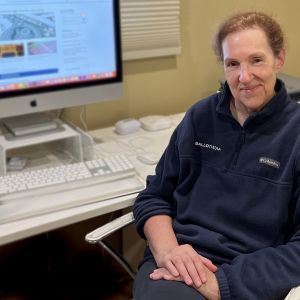The Pathfinder: Let’s Talk Politics

Politics, religion, and money—the three topics we have long been told shouldn’t be discussed in polite company—but just about everyone does anyway.
And that includes the places we work. Politics are often part of our workplace discussions, from break rooms to water coolers, Slack channels, Zoom meetings, and deskside cubicle visits.
Sometimes, those exchanges can get heated. In C-suites and human resource departments across the country, there’s a worry that too much-heated rhetoric could affect morale, productivity, and the bottom line.
A case in point: a Wall Street Journal article noted that it is “getting harder” for companies to keep politics out of the workplace. But at the same time, there’s a realization that making the office a politics-free zone is impossible.
The Journal’s Chip Cutter and Lauren Weber wrote that companies use various strategies to de-escalate political arguments. One approach is that of Republic Services CEO Jon Vander Ark, who told the Journal, “He wants managers to emphasize civility between colleagues. Supervisors should break up conversations among workers if a conversation becomes overly heated or verges on proselytizing for one party.”
That contrasts with Google. Earlier this year, Google fired 28 employees following a sit-in protest over the company’s cloud computing work for the Israeli government. CEO Sundar Pichai told staff:
…this is a business and not a place to act in a way that disrupts coworkers or makes them feel unsafe, to attempt to use the company as a personal platform, or to fight over disruptive issues or debate politics. This is too important a moment as a company for us to be distracted.
State laws vary in how far companies can go in regulating employee speech in the workplace. And it will not escape some employees’ notice that the very executives seeking to moderate political debate in the office are not shy about sharing their opinions on politics and policy.
It seems, then, that we have a problem with political speech. But it’s not one that executives or the HR department could or should be asked to solve. Instead, we should actively pursue ways to engage in political and policy debates and discussions that enrich our lives, deepen our understanding of the democratic process, and fully engage us in our community.
What does that mean?
First, we must divorce ourselves from the temptation to “win” a political or policy-related argument. We must step back from saying things we’ll regret to colleagues we rely on. Instead, channel that passionate political energy into something truly useful and constructive: educating ourselves on our communities’ political processes, policy debates, and candidates.
We tend to forget it, but there are more than 500,000 elected officials in the United States. Congress and the president account for a tiny fraction of that amount. It’s at the local level that policies regulating how kids are educated, our streets are built, and neighborhoods are made safe are decided.
Tip O’Neill, speaker of the U.S. House of Representatives from 1977 to 1987, is famous for saying, “All politics is local.” Public awareness and involvement are harder to come by at the local level of government. That must change.
For example, if education is a big issue for you, then get busy learning how your local school district adopts or revises its curriculum for each school year. Study how the process works—attend public meetings where the issues are debated, listen to what the speakers say, read the handouts, and don’t be afraid to ask questions.
Then, learn about the candidates running for the school board and what they hope to achieve in office. These officials have tremendous responsibility and authority that directly affect the lives of families in our neighborhood. Yet the vast majority of school board elections rarely garner the media coverage they deserve. That can make learning about these candidates – or others running for local office – challenging.
It’s a challenge we must embrace if we want our institutions to function properly – and our democratic processes to thrive.
My challenge to readers is this: Put your individual flag in the sand on the issues and politics of the moment. Do it in your neighborhood, your community, and your workplace.
But do so only if you’ve first made the effort to educate yourself. Need help getting started? Visit Ballotpedia.org. We’ll help you become the engaged, informed, and thoughtful citizen our democracy needs.

The Pathfinder is a monthly column written by Leslie Graves, founder of Ballotpedia, for Preserving Democracy. Exploring topics vital to our understanding of American civics and Democracy, The Pathfinder attempts to cut through the noise of political journalism while exploring issues of vital importance to the American voter.




